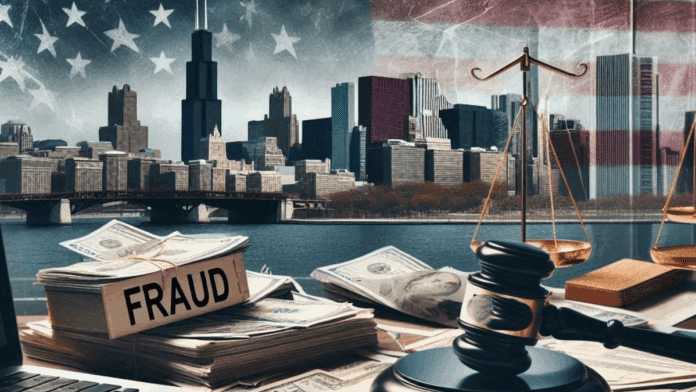A suburban Chicago businessman, Rahul Shah, has been convicted by a federal jury for his involvement in a massive fraud scheme. Shah, 56, of Evanston, Illinois, was found guilty of defrauding banks and the U.S. government out of more than $55 million. He ran several information technology companies and used them to carry out his crimes.
Fake Documents, Real Damage
According to court documents, Shah created fake documents to get business loans and credit. These loans came from federally insured banks. He used false bank statements. The statements showed more money coming in than there really was. He also made fake balance sheets. These made it seem like his companies earned more than they actually did.
He also forged audited financial statements, even going so far as to forge signatures to make the documents look real. Shah received the money and later defaulted on at least one loan and one credit line, meaning he didn’t pay the money back.
Shah didn’t just lie to get the money — he also moved the funds around in ways that helped hide what he was doing. This led to additional charges of money laundering.
PPP Loan Abuse During COVID-19 Crisis
Shah’s crimes didn’t stop with commercial loans. During the COVID-19 pandemic, he took advantage of the Paycheck Protection Program (PPP), a federal relief program meant to help small businesses keep their workers employed. The program, backed by the U.S. Small Business Administration (SBA), gave out forgivable loans to qualifying companies. Shah wanted in — and he lied to get it.
Rodrick Florence Jr. Gets 72 Months in Prison for Nationwide Bank Fraud
He applied for a $441,138 PPP loan for one of his companies. To make the business look eligible, he inflated the payroll numbers. He submitted fake IRS documents showing payments to people who had never worked for him or received any pay.
Even more troubling, Shah used stolen identities in the application process. He used the names and taxpayer identification numbers of real people, knowing they were not connected to his business at all. He also submitted what looked like IRS Forms 941 for quarterly payroll reporting in 2019. But when authorities compared them to the real tax filings, the numbers were far lower than what Shah claimed.
All of this was part of an effort to trick the system and collect money that his company had no right to receive.
Rahul Shah Faces Years Behind Bars After Conviction
After a thorough investigation by the FBI Chicago Field Office and the Small Business Administration Office of Inspector General (OIG), the case went to trial. Prosecutors, including Assistant Chief Patrick Mott and Trial Attorney Lindsey Carson of the Department of Justice’s Criminal Division, along with Assistant U.S. Attorney Jasmina Vajzovic, led the case.
Brazil’s Banking Backbone Breached; Major Cyber Attack Threatens Central Bank Links
The jury convicted Shah on the following charges:
- 7 counts of bank fraud
- 5 counts of making false statements to a financial institution
- 2 counts of money laundering
- 2 counts of aggravated identity theft
Each count of bank fraud and making false statements carries a maximum prison sentence of 30 years. The money laundering charges could bring up to 10 years each, and the aggravated identity theft charges carry a mandatory 2 years each. Sentencing is scheduled for November 13. A federal judge will determine the exact sentence, considering federal guidelines and other factors.
The case is part of the Department of Justice’s broader crackdown on COVID-related fraud. Since the CARES Act was passed, the DOJ has charged over 200 individuals in connection with PPP loan fraud and recovered more than $78 million, along with luxury goods and properties bought with stolen funds.
